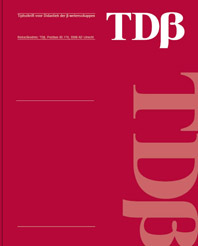Modellen en de ontwikkeling van het (natuur-)wetenschappelijk denken van leerlingen

Tijdschrift voor Didactiek van de Beta-wetenschappen, uitgegeven door het Freudenthal Instituut, Universiteit Utrecht in de periode 1983-2014 |
Van Oers, B.
Tijdschrift voor Didactiek van de Beta-wetenschappen |
The development of scientific thinking in school is one of the main educational aims in the modern world. This general educational aim implies, among other things, that we teach our pupils to (re)construct and use mental models in the process of solving theoretical or practical problems. In this article we have tried to show how this goal can be achieved starting from a cultural historical (Vygotskian) point of view. The development of scientific thinking can be fostered by involving pupils from an early age in a scholarly activity that is organised according to the rules of the real scientific enterprise. In this social activity pupils should be brought in the position to take a meaningful role (in agreement with their level of cognitive and motivational development), while the teacher’s essential role is to take care of the execution of those parts of the activity that the pupils cannot yet carry out themselves. In this learning activity (Davydov) the pupils gradually can interiorise the possibility to (re)construct and use (scientific) models. Basically this procedure is an elaboration of the Vygotskian view on interiorisation and the zone of proximal development. Didactically this educational procedure refers to a teaching process that capitalizes on model-based discussions between teacher and pupils.
U moet ingelogd zijn om een reactie te kunnen plaatsen.


